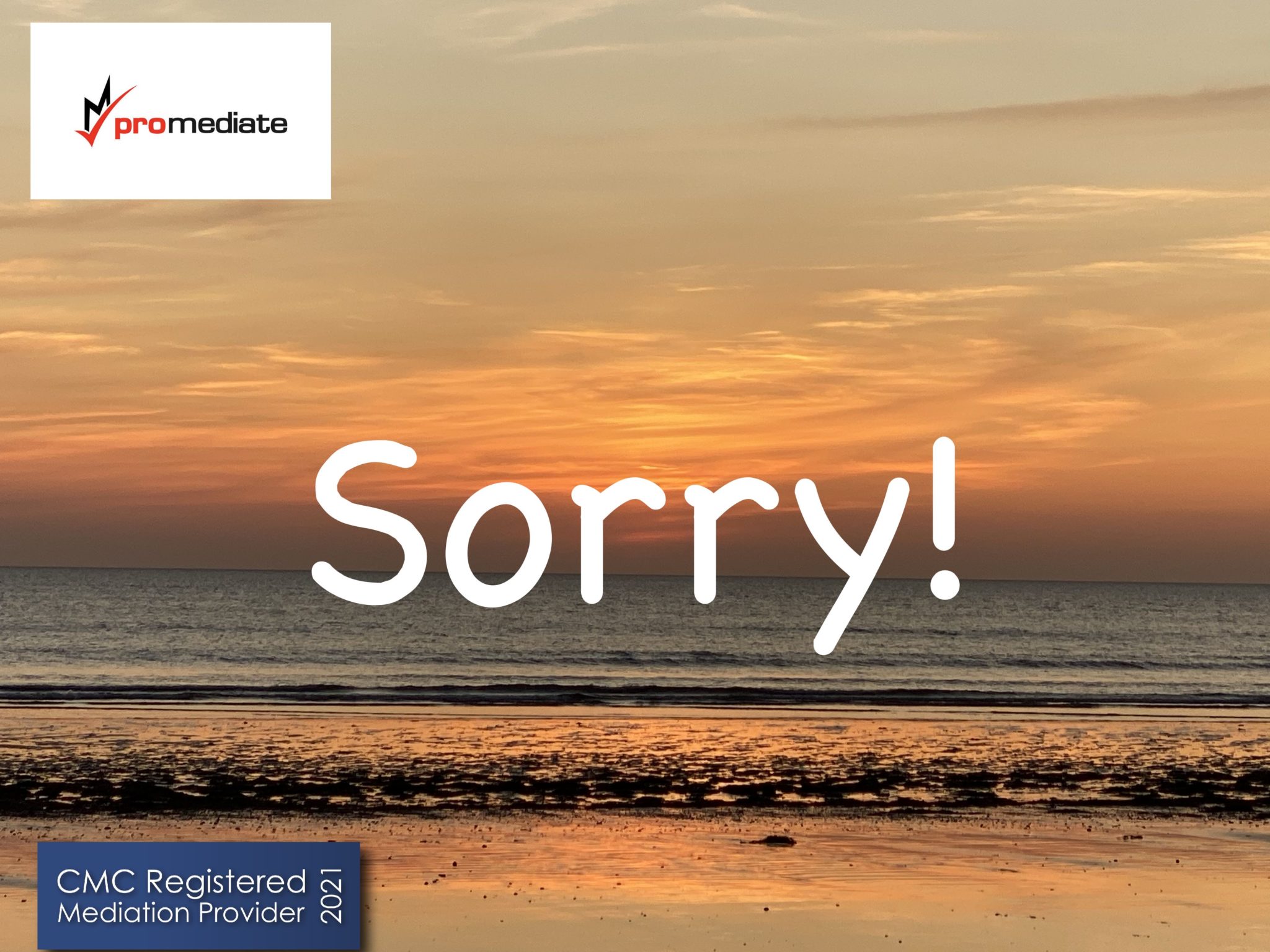Sorry to bother you, but there is a debate about whether the law should be changed to make it easier for a party to apologise to another without facing consequences in terms of admitting liability.
It is already the position that an apology does not amount to an admission of liability under the Compensation Act 2006.
However, people are still reluctant to apologise as the recent case of Rebekah Vardy v Coleen Rooney demonstrates- apparently the WAGs failed to resolve matters as one would not apologise. At the other end of the scale I have dealt with many RTA cases where a driver’s admission of fault immediately after an accident is used against them at trial. In professional negligence cases people often ask for apologies. What they are often seeking is effectively an acknowledgement of fault and recognition that they have upset the other party. In personal relationships counsellors often advise people to apologise, even if they do not mean it. An apology, it is often said, costs nothing.
There is a campaign group set up called “Apology Clause” which is campaigning to clarify the law. It states on the website that:
We all want businesses and organisations to do the right thing. So when things go wrong we expect them to say sorry. The reality can often be quite different. Businesses may be reticent in apologising for fear of admitting liability, being sued or facing rising insurance premiums.
Yet the Compensation Act 2006 makes it very clear that “ an apology, an offer of treatment or other redress, shall not itself amount to an admission of negligence or breach of statutory duty”.
This clause is not sufficiently well known or tested in case law for many lawyers to feel confident advising their clients to do the right thing. Consequently, the lack of an apology often makes it harder for the victims to move on from the trauma, particularly when human tragedy is involved.
Evidence shows that a clear apology can help victims get the closure they need to be able to move on from trauma. A common side-effect of trauma is that victims blame themselves, which is more likely to occur if others shun responsibility.
More regular use of the apology clause, or a simple clarification of the Compensation Act 2006 would give lawyers and other advisers more confidence in recommending their client do the right thing.
We believe this is needed, so we are calling for:
- Greater awareness of the apology clause through the business world
- Increased use of the clause so lawyers and business become increasingly comfortable using it
- Better understanding among insurers, to make it easier for businesses to do the right thing without concern about redress
- Clarification of the law: to define what it means by an apology, the scope of matters that it relates to, whether an apology is deemed in legal terms to be an admission, or if it is simply not admissible as an admission of liability, or whether an apology would void insurance contracts
- An undertaking that an apology should include a commitment to look at the circumstances behind the event, with a view to preventing it from happening again.
An MP wants to take this further and outside the personal injury arena. The question is – should it be easier to apologise? Would it increase the chances of settlement in other types of claims? In my experience although people do sometimes ask for an apology where there is a personal claim, the mediation outcome seldom turns on it. Also I think that by watering down the significance of an apology it becomes meaningless. Paradoxically changing the law to make apologies easier to make may actually undermine the value of an apology.
No one in fact wants an apology that means nothing to the apologist. So, in personal relationships people often say “but you don’t mean it!” and do not accept an apology unless the apologist really accepts responsibility and really means it, rather than accepting an empty apology.
Now an MP is trying to change the law to reinforce the point that an apology should not amount to an admission of liability in any case. Mediators’ views are sought as to whether this would help to resolve cases:
|
|
|
|
|
|
|

